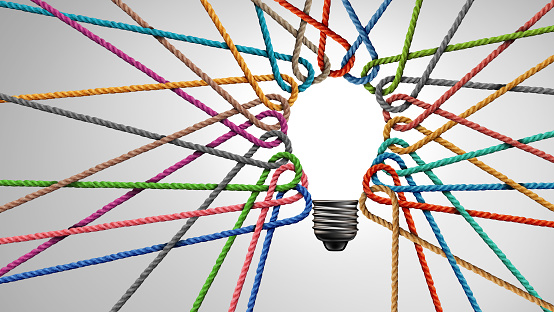In light of the upcoming 2022 Dyslexia Show that’s being held in Birmingham, this blog is dedicated to the thousands of MindGenius users who have dyslexia.
Mind mapping is a great tool for bringing your thoughts and ideas to life. Technology has allowed us to advanced beyond the need for a pen and paper approach, and we can now take our mind maps with us on the go, as well as being able to export them to hundreds, if not thousands of people anywhere in the world.
Mind mapping is fantastic method to support people with dyslexia, because of its associations with visual learning. It is often used as a way to plan longer written work, sketching out ideas or to begin a project. However, mind maps can also be a valuable asset when revising and learning.
How does Mind-mapping help those with Dyslexia?
- Mind maps focus less on the need to have correct spelling spelling, grammar or sentence structure. Through using keywords, images, associations and connections, mind mapping can arguably be BETTER than any other form of communication and/or study techniques.
- Mind mapping can also provide a boost of confidence and brings the fun back into learning by bypassing the challenges associated with dyslexia.
- Mind-mapping helps keep your information clean and organized, avoiding “idea spaghetti” that mind-mapping with pen and paper can often bring.
- Allows you to get information down in a way that is selective but without assuming it is in any particular order. It allows you to make links between information and see the big picture a glance.
MindGenius for Mind-mapping
Dyslexia affects up-to 1 in 10 people in the UK. MindGenius disentangles the ‘spaghetti’ and ensures focus, enables better work to be produced more thoroughly, correctly and quickly, every time. A welcome toolbox, it lays out topics in bite sized chunks the mind can cope with, making a subject so much clearer and easier to remember. MindGenius is available in a large variety of schools and colleges throughout the UK.
Conclusion
However, it is worth noting that mind maps aren’t solely for dyslexic people or those with additional learning needs, but mind mapping in general provides the opportunity to learn in a different, more visually-engaging way. Research suggests that up to 65% of the world are predominantly visual learners. Studies have also shown that the brain can process images and videos 60,000 times faster than text. So, the main takeaway should be, can’t we all use mind maps more?
Fancy giving it a go? Get started with MindGenius today by clicking Get Started below.

